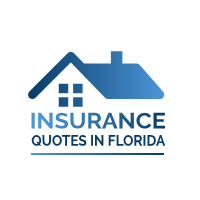A variety of Commercial Auto Insurance policies exist to protect the business use of cars, vans, trucks, and trailers. Most policies are customized to fit the unique needs of each business. The typical policy covers:
- Injury or death of drivers involved in an on-the-job collision.
- Injury that you or one of your employees cause to others in an on-the-job vehicle accident.
- Damage or loss to your business’ vehicles and cargo.
- Damage you or your employees cause to others’ vehicles or property.
- Uninsured motorist protection.
As with Personal Auto Insurance, Commercial Vehicle Insurance covers personal injury, damage to vehicles and property, and protection from liability.
What Commercial Auto Insurance Is Not
Commercial Auto insurance has many similarities to Personal Auto Insurance, but there are significant differences. Coverage limits are usually higher. It gets a bit complex when you or your employees use personal vehicles for business use. Most commercial policies won’t cover an employee’s personal liability (just company liability), and most won’t reimburse employees for damage caused to personal vehicles used for company business. Check with your agent to see if your business use of personal vehicles warrants commercial insurance. Requirements and rules vary from state to state.
Most Commercial Vehicle policies don’t cover volunteers. If your business works with volunteers who drive company vehicles, additional coverage may be required.
Who Needs Commercial Auto Insurance?
In general, if your business owns or leases vehicles–regardless of how many–you need Commercial Vehicle Insurance.
It’s estimated that one in four workplace deaths are due to motor vehicle accidents. Therefore, any enterprise that uses one or more vehicles during the course of business will want the protection offered by Commercial Vehicle Insurance. Employed and self-employed individuals who use their own cars predominantly for business will, in all likelihood, also need commercial insurance.
Some insurance companies will not insure certain types of commercial vehicles, like taxi and limo services, hazardous waste haulers, emergency vehicles, and driving schools. Separate coverage is required.
Things To Think About
Does the policy cover medical expenses for you and your passengers regardless of fault? Not all do.
Some insurance companies offer provisions for “non-owned auto” liability. This would be worth looking into if your business makes frequent use of employee-owned vehicles.
There are a number of things you can do to lower your potential premiums: install anti-theft devices on your vehicles, hire employees with clean driving records, offer employees defensive driving courses, and perform routine employee drug and alcohol testing.
Some insurance companies offer multi-vehicle discounts. It’s also important to notify your carrier of any additions to your fleet.
